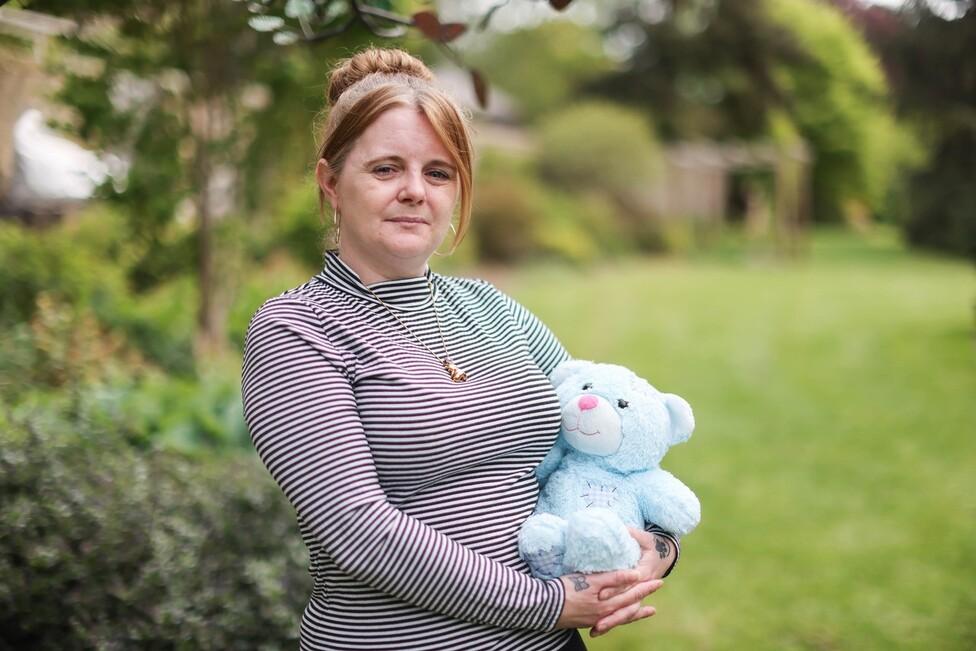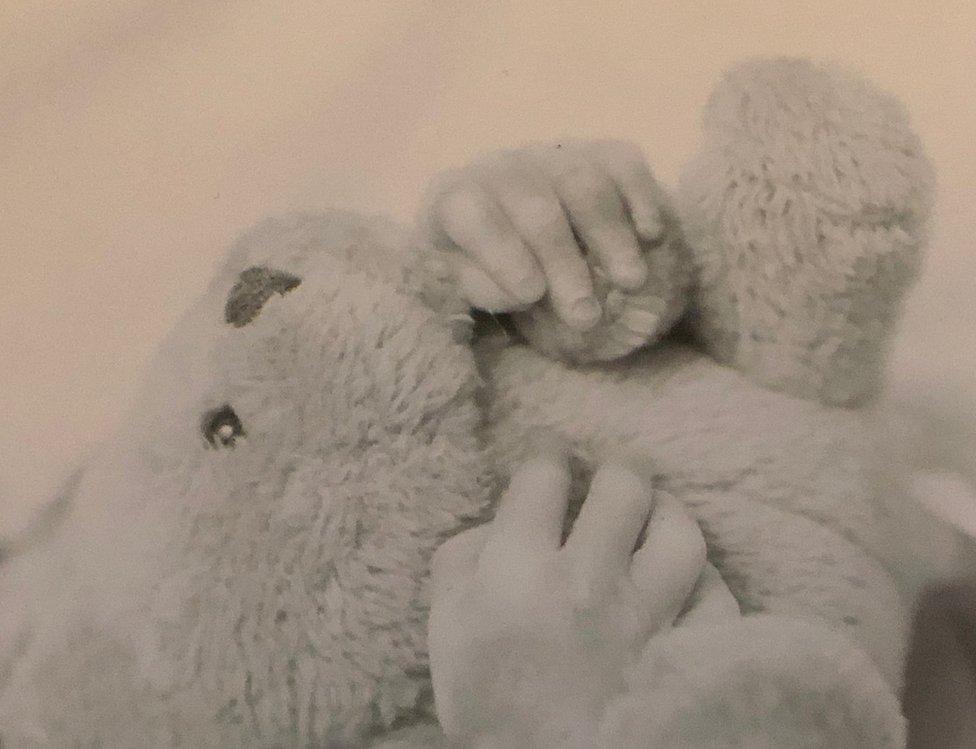'Stillborn babies should have legal rights'
- Published

Laura Gallazzi lost her baby Steven in 2014
Warning: This account includes graphic details and images which some people may find upsetting.
A woman who lost her baby during childbirth is fighting for stillborn children to have legal rights.
Laura Gallazzi was 25 weeks pregnant when she went into labour at Dundee's Ninewells hospital in March 2014.
Her baby Steven was in the breech position but her doctor went ahead with a normal birth which led to the baby being decapitated.
Her petition for stillborn rights is approaching 10,000 signatures, meaning it could be debated in parliament.
The Scottish government said it was important for any lessons to be learned from tragic deaths such as Steven's, and said it would look closely at the petition.
Ms Gallazzi, 39, wants the law to be changed so that babies over 24 weeks have legal rights.
This would allow parents to pursue other proceedings over their child's death.
In UK law, an unborn baby does not become a separate person with legal rights until they are born and draw breath by themselves.
Steven was unable to do this due to his traumatic birth.

The charity Remember My Baby took remembrance photographs of Steven
A medical tribunal ruled that the consultant gynaecologist who led Ms Gallazzi's delivery, was mistaken in attempting a vaginal delivery rather than a caesarean section.
The tribunal said her decision set in place a chain of events which led to the baby's decapitation.
It heard that the consultant was nearing the end of a 24-hour split shift when she was called to attend.
However another tribunal later ruled she was fit to practise and could return to work.
Steven's death was also investigated by the procurator fiscal, who concluded that there was insufficient evidence for criminal proceedings to be taken and no legal basis to hold a fatal accident inquiry.
Ms Gallazzi told BBC Radio Scotland's Good Morning Scotland programme that her experience could have been less traumatic if her child had a legal identity.
She said: "There would have been a lot more investigation because if Steven was classed as a person, then he would have his own legal persona."
Her petition is calling for parents to have the option of an investigation if they feel able.
She said she was fighting for her son, adding: "The justice system doesn't get to turn their back on my son because he didn't take a breath because of his injuries, because he was decapitated.
"I see it as a very stupid reason."
Ms Gallazzi said that no one was held accountable for the death of her child as he lacked the rights that other people have.
She added: "But yet I had to have a funeral and I've got a death certificate. And the cause of death on his death certificate is traumatic delivery."
Ms Gallazzi said a hospital pathologist told her that her child could have survived if he had been delivered by a caesarean section.
However she acknowledges there may still have been complications post-birth.

Steven's ashes were placed inside a teddy bear
"I don't want what happened to my son to be for nothing," she said.
"So I think the law should be looked at on a person-centred approach, just like how you get person-centred care.
"I didn't get person-centred care and neither did my son that day."
The Scottish government has already announced plans for a memorial book and certificate for those who lose a baby before 24 weeks.
However Ms Gallazzi wants more to be done for grieving parents.
"I don't live anymore, I exist," she said.
"And I exist to make sure nothing like this could happen again, or if something similar does happen, no mum or dad ever has to sit across from a stranger and be told 'I'm really sorry but your child is not a person'."
She added: "It doesn't fix things for me, but it would make me breath a wee bit easier.
"There's no rhyme and reason for what happened, but something should be done."
A Scottish government spokesman said: "Every baby's death is a tragedy and has a profound impact on their loved ones, and we again offer our deepest condolences to the family. We will carefully consider the petition.
"It is important that lessons are learned from the circumstances of these deaths and that changes to processes or care standards are implemented where opportunities for improvements are identified.
"That is why our Maternity and Neonatal (Perinatal) Adverse Event Review Process for Scotland, published September 2021, will support the delivery of a standardised review process across NHS Scotland for maternity and neonatal adverse events and deaths and is aimed at improving approaches to the review of adverse events, strengthening external input into reviews and sharing learning."